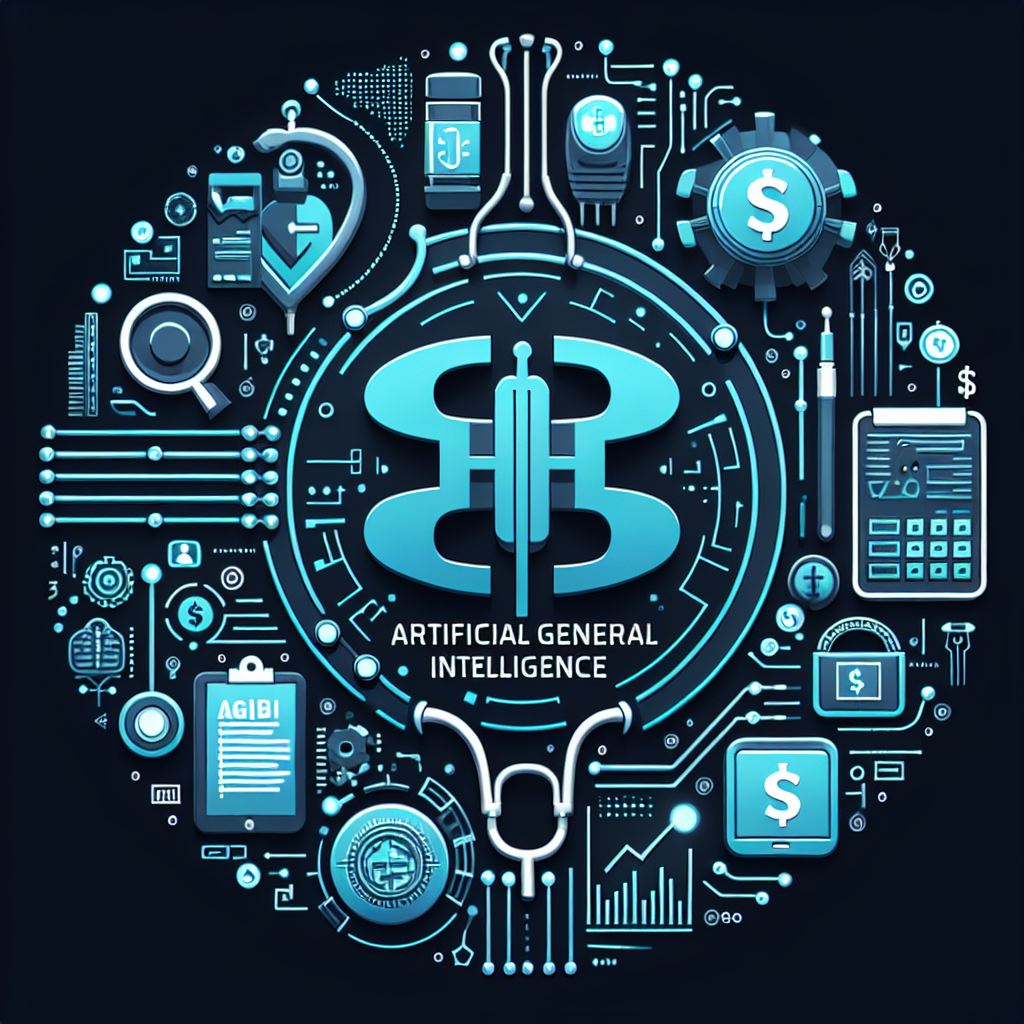Artificial General Intelligence (AGI) is a form of artificial intelligence that is capable of understanding and learning any intellectual task that a human being can. Unlike traditional artificial intelligence systems, which are designed for specific tasks, AGI has the potential to revolutionize various industries, including healthcare, finance, and more. In this article, we will explore how AGI is transforming these sectors and the opportunities and challenges that come with it.
Healthcare:
AGI has the potential to revolutionize healthcare by providing personalized treatment plans, predicting disease outbreaks, and enhancing medical research. One of the key advantages of AGI in healthcare is its ability to analyze vast amounts of data from various sources, including medical records, genetic information, and clinical trials. This data can be used to identify patterns and trends that can help doctors diagnose diseases earlier and more accurately.
AGI can also help improve patient care by providing personalized treatment plans based on a patient’s unique genetics, lifestyle, and medical history. This can lead to more effective treatments and better outcomes for patients. In addition, AGI can be used to predict disease outbreaks by analyzing data from social media, search engines, and other sources to identify trends and patterns that may indicate the spread of a disease.
AGI is also transforming medical research by accelerating the discovery of new drugs and treatments. By analyzing large datasets of medical and scientific research, AGI can identify potential drug candidates and predict their effectiveness before they are tested in clinical trials. This can help researchers save time and resources and bring new treatments to market faster.
Finance:
In the finance industry, AGI is revolutionizing how companies manage risk, make investment decisions, and detect fraud. AGI can analyze vast amounts of financial data in real-time to identify trends and patterns that can help companies make more informed decisions. For example, AGI can be used to predict market trends, optimize trading strategies, and identify potential investment opportunities.
AGI can also help companies manage risk by analyzing data from multiple sources, including financial markets, news articles, and social media, to identify potential threats and opportunities. This can help companies mitigate risks and maximize their returns on investment.
AGI is also transforming how companies detect fraud by analyzing large datasets of financial transactions to identify suspicious patterns and anomalies. This can help companies prevent fraud before it occurs and protect their customers’ assets.
Challenges and Opportunities:
While AGI has the potential to revolutionize various industries, it also poses challenges and risks. One of the main challenges of AGI is ensuring that it is ethical and transparent. AGI systems are trained on large datasets of human-generated data, which can contain biases and errors. It is important to ensure that AGI systems are fair, unbiased, and accountable to prevent potential harm to individuals and society.
Another challenge of AGI is ensuring that it is secure and protected from cyber threats. AGI systems are highly complex and interconnected, which makes them vulnerable to cyber attacks and hacking. It is important to implement robust security measures and protocols to protect AGI systems from unauthorized access and manipulation.
Despite these challenges, AGI also presents opportunities for innovation and growth. By harnessing the power of AGI, companies can improve their decision-making processes, optimize their operations, and create new products and services that can benefit society. AGI has the potential to transform how we work, live, and interact with each other, and it is important to embrace this technology responsibly and ethically.
FAQs:
Q: What is AGI?
A: AGI is a form of artificial intelligence that is capable of understanding and learning any intellectual task that a human being can. Unlike traditional artificial intelligence systems, which are designed for specific tasks, AGI has the potential to revolutionize various industries by providing personalized treatment plans, predicting disease outbreaks, and enhancing medical research.
Q: How is AGI transforming healthcare?
A: AGI is transforming healthcare by providing personalized treatment plans, predicting disease outbreaks, and enhancing medical research. AGI can analyze vast amounts of data from various sources, including medical records, genetic information, and clinical trials, to identify patterns and trends that can help doctors diagnose diseases earlier and more accurately.
Q: How is AGI revolutionizing finance?
A: In the finance industry, AGI is revolutionizing how companies manage risk, make investment decisions, and detect fraud. AGI can analyze vast amounts of financial data in real-time to identify trends and patterns that can help companies make more informed decisions. AGI can also help companies manage risk by analyzing data from multiple sources to identify potential threats and opportunities.
Q: What are the challenges of AGI?
A: One of the main challenges of AGI is ensuring that it is ethical and transparent. AGI systems are trained on large datasets of human-generated data, which can contain biases and errors. It is important to ensure that AGI systems are fair, unbiased, and accountable to prevent potential harm to individuals and society. Another challenge of AGI is ensuring that it is secure and protected from cyber threats. AGI systems are highly complex and interconnected, which makes them vulnerable to cyber attacks and hacking.
In conclusion, AGI has the potential to revolutionize various industries, including healthcare, finance, and more. By harnessing the power of AGI, companies can improve their decision-making processes, optimize their operations, and create new products and services that can benefit society. However, it is important to address the challenges and risks of AGI, such as ethical concerns and cybersecurity threats, to ensure that this technology is used responsibly and ethically.

